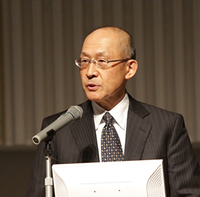2025
In recent years, China has expanded its global and regional economic footprint. Through new institutions, such as the Asian Infrastructure Investment Bank (AIIB) and the One Belt, One Road initiative, Beijing seeks to carve out a leadership position within the global economy. Meanwhile, the United States’ failed effort to pass the Trans-Pacific Partnership (TPP) and President Trump’s rhetoric against China and multilateral trade agreements during his campaign have raised concerns for the U.S. role in the Asia-Pacific economy. In particular, Japan, a TPP member, must now recalibrate and figure out how best to situate itself between a looming China and a retreating United States.
On March 8, the Center for East Asia Policy Studies at Brookings held a public forum that brought together experts from Japan and the United States to examine the geopolitical implications of China’s recent economic diplomacy strategy. Panelists discussed the recent steps Beijing has taken to further its agenda, and what it means for the region and the United States. Following the presentations, Richard Bush, director of the Center for East Asia Policy Studies, moderated a panel discussion.
Agenda
-
March 8
-
Moderator
 Richard C. Bush Nonresident Senior Fellow - Foreign Policy, Center for Asia Policy Studies, John L. Thornton China Center
Richard C. Bush Nonresident Senior Fellow - Foreign Policy, Center for Asia Policy Studies, John L. Thornton China CenterPanelist
 Masahiro Kawai Representative Director and Director-General - Economic Research Institute for Northeast Asia, Professor, Graduate School of Public Policy - University of Tokyo
Masahiro Kawai Representative Director and Director-General - Economic Research Institute for Northeast Asia, Professor, Graduate School of Public Policy - University of Tokyo Evan A. Feigenbaum Vice Chairman - The Paulson Institute
Evan A. Feigenbaum Vice Chairman - The Paulson Institute Kiyoyuki Seguchi Research Director - The Canon Institute for Global Studies
Kiyoyuki Seguchi Research Director - The Canon Institute for Global Studies
-


